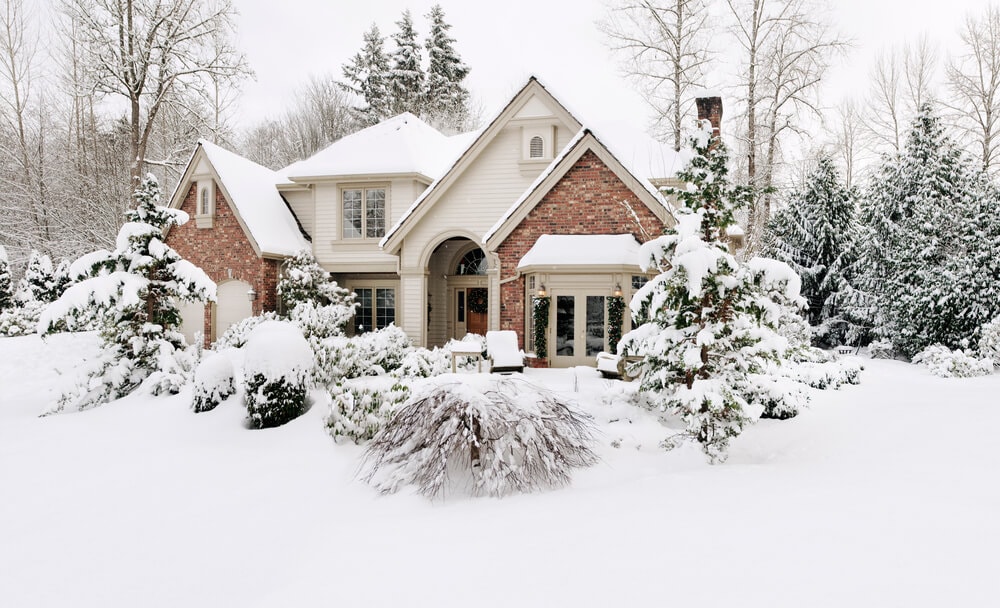December is the coldest month of the year in some states. Preparing your home for the winter may not be on your to-do list right now. You may simply be looking forward to getting time off for the holidays. However, staying on top of the upkeep in your home will give you peace of mind during the holiday season.
If you’re not sure where to start, then you’ll find valuable information in this guide. We’ve provided top tips on how to maintain your home during winter. Your home will be much more enjoyable even when the temperatures drop.
Maintain Your Appliances and Tools
During winter, you’ll experience heavy leaf fall, especially if you have lots of trees in your garden. Depending on where you stay, you may also experience snowfall. This means you’ll need garden appliances and tools to clear away debris in your driveway.
There are tools such as snow or leaf blowers that may stop working, which will be a massive inconvenience. You must check which appliances need an extended warranty, so you don’t have to fork out hundreds of dollars to replace important appliances.
Other winter appliances you should extend warranties on include your HV/AC system, stove, and dryer. Appliances are expensive, so having a warranty will cover the costs of these pricy units if they break.
Clean Out the Fireplace and Check Your Chimney
Do you prefer a fireplace to an HV/AC system? If you want to save on electricity every month, then a fireplace is the best alternative to an aircon. But they can get dirty, and a blocked chimney means your fireplace will be out of service for the winter months.
You should always have your chimney inspected a month before the start of the fall. A clogged chimney can cause house fires and trap the smoke inside your home, which increases the risk of carbon monoxide poisoning.
Additionally, warm air can escape through open chimneys, so you’ll need a chimney balloon when you’re not using your fireplace. It’s recommended that you get your chimney inspected and cleaned by a trained professional once a year.
Check Your HV/AV System
If you’re a homeowner that doesn’t enjoy cleaning ash from a fireplace or collecting wood to burn, then you’ll most likely have an HV/AC system installed. However, you must ensure that your heating systems are working properly and that your air vents are clean.
You should have your HV/AC system inspected once a year by a trained professional. If there are problems with your filters or pipes, a professional can diagnose the problem and fix it. You’ll then have a functioning heating system, and you can turn up the temperatures in your home when it starts getting cold outside.
Inspect Your House for Leaks and Drafts
Cracks in your walls, roof, and windows that don’t close properly can cause the heat in your home to escape. Cold air can come in through these openings too. If you don’t know where the warm air is escaping, consider using a thermal infrared camera to check for leaks in your home.
Typically, warm air escapes from underneath doors and through windows. Use weatherstripping to seal windows and doors to ensure warm air stays in, and cold air stays out!
Cover Bare Floors
Porcelain or natural stone tiles look sophisticated in a home. But tiles also make your home feel cold, and it can be difficult to heat a room. To insulate your house, you can cover your hard floors with shaggy rugs. The thicker the rug, the better the insulation.
Place rugs in areas where you spend most of your time, such as the living room and bedrooms. Covering your floors will prevent heat loss, and it will keep your feet warm when you’re walking around the house. Make sure that your carpeting matches the decor around your home.
Prevent Ice Dams
If you live in a region where it snows or temperatures reach below zero, you may experience ice dams at the edge of your roof. These ice formations prevent melting snow from draining properly. Water will then leak inside your home, causing major damage to walls and ceilings.
You can prevent ice dams from forming by adding insulation to your roof and optimizing ventilation. This will keep your entire roof at the same temperature so that ice doesn’t melt and refreeze.
Weatherproof Exterior Pipes
Cold temperatures can cause havoc for pipes located outside of your home. Pipes that are frozen can crack, which causes water leakage. To protect your pipes, you can insulate them by wrapping them in insulation tape. There’s also a special foam board you can wrap around your pipes for extra protection.
Final Thoughts
If you don’t maintain your home during winter, you may experience unwanted scenarios such as a broken HV/AC system or a clogged chimney. To ensure you have a comfortable environment during winter, use this article as a checklist to ensure you stay on top of the upkeep in your home.
